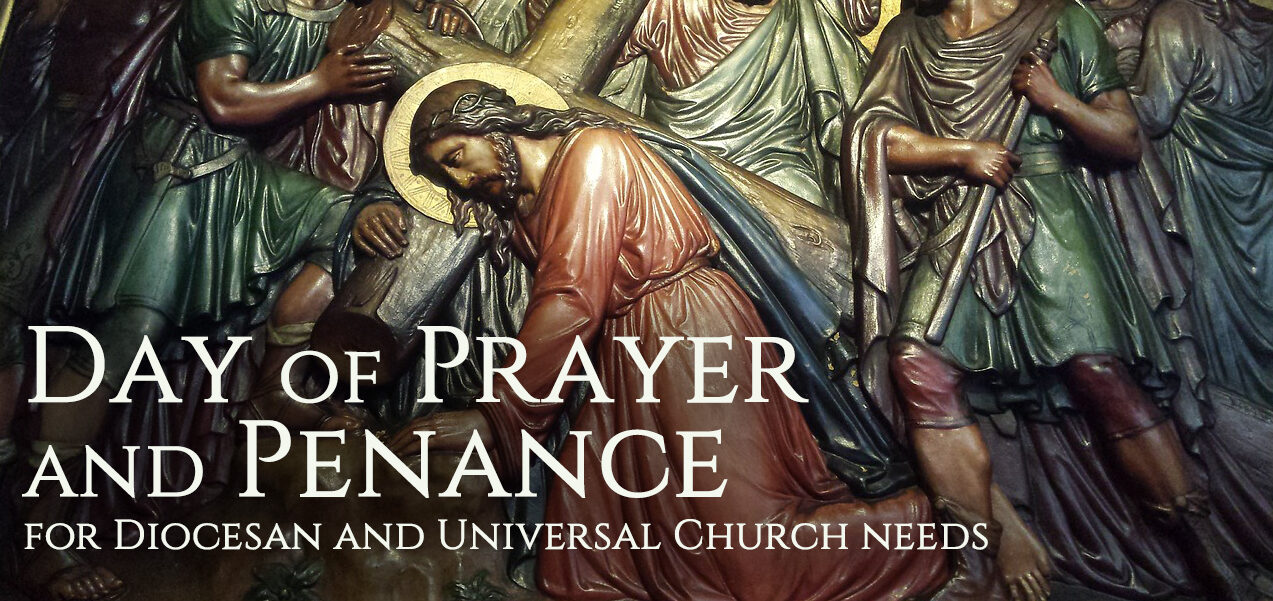February 26 (Friday): Day of Prayer and Penance for Diocesan and Universal Church needs.
Friday of the first full week of Lent is a “Day of Prayer and Penance for Diocesan and Universal Church Needs.” But why?
Apart from the year’s various seasons—Advent, Christmas, Lent, Easter, and Ordinary Time—the Church sets aside particular days throughout the year as special times of prayer, petition, or penance. Traditionally, these are called Rogation Days or Ember Days.
“Rogation” comes from a Latin word meaning “to ask” or “to petition” (from rogo, rogare). These days asked or petitioned God for a fruitful agricultural harvest from fields, gardens, orchards, and flocks. While the Rogation Days are customarily celebrated in the Spring—on April 25 and for the three days leading up to the Ascension of Jesus—the reforms of the Second Vatican Council allowed these days to be “adapted to the different regions and different needs of the faithful” (Norms on the Liturgical Year, 46). In the Diocese of La Crosse, our “Rogation Day” is ordinarily celebrated on the fourth Wednesday of September and is called “Rural Life Day.” On this day, God is thanked for the harvest and especially for farmers, and he is petitioned for the continued health, safety, and success of farmers in the year to come.
“Ember” finds its roots in the concept of “recurring” or “cyclical,” since these days had been observed every three months, near the beginning of each season. For three days at the beginning of each season—on Wednesday, Friday, and Saturday—the Church fasted, prayed, and performed acts of charity. Like the Rogation Days, the Embers Days were meant to find local expression after the Second Vatican Council so that they could better respond to the needs of a given diocese. In the Diocese of La Crosse, Friday of the First Week of Lent has been established as a “Day of Prayer and Penance for Diocesan and Universal Church Needs,” first by the Fourth Diocesan Synod in 1986, and then officially by the Holy See when it approved La Crosse’s liturgical calendar in 2006. On this day, members of the Diocese “offer their prayer, fasting, and almsgiving in reparation for their own sins and the sins of the world. …[We] turn our attention to our dependence on God, who alone fulfills our hungers and brings healing to a wounded world” (Catholic Household Blessings and Prayers, p.164).
By Christopher Carstens
Director of Office of Sacred Worship
February 2021

